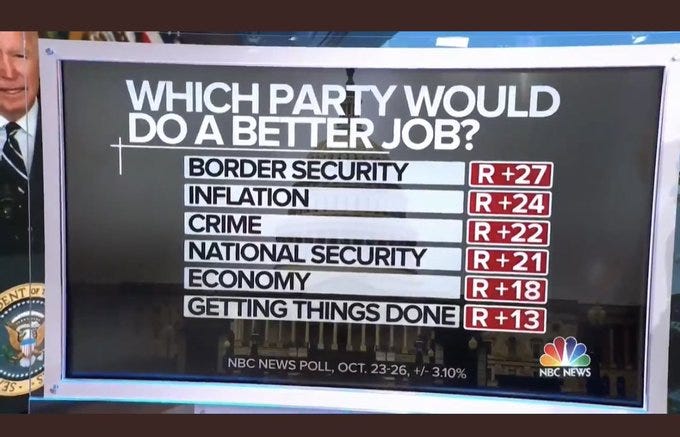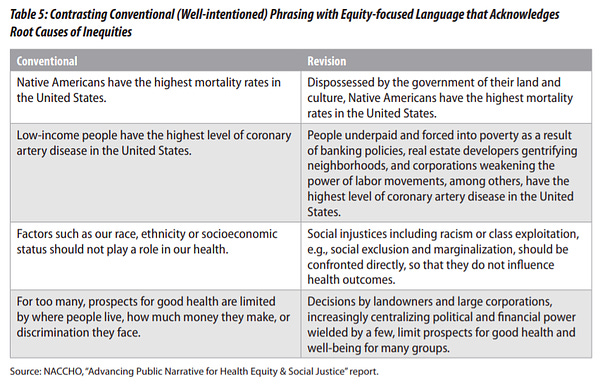As it dawns on the political world that a Trump Presidency 2.0 — more dangerous, more focused, uglier, and out for revenge — is a very real possibility, there is a palpable sense of panic amongst the punditocracy.
This panic is (A) wholly justified, and (B) already generating bad ideas. (For some genuinely good ideas, check out Tim Miller’s piece in today’s Bulwark. More about that later.)
Let’s start with this bit of he’s-coming-back-derangement from The Atlantic. Conor Friedersdorf (who is usually a level-headed fellow) writes: “Why Never Trumpers Should Bet on DeSantis Now.”
“The Florida governor is flawed,” Friedersdorf writes, “but within normal parameters. The former president poses a unique threat.”
So … DeSantis.
[In] publications including National Review, The Dispatch, and The Bulwark, anti-Trump conservatives are now debating what to do. They all view the 45th president as an unacceptable leader, deplore the Trumpist turn in the GOP, and lament the dearth of promising strategies for reversing it.
Alongside the options they’re considering, I’d add one more: uniting behind Florida Governor Ron DeSantis, the GOP rising star who can boast both conventional political achievements and credibility on the Trumpist right. By failing to unite around any candidate in 2016, Trump’s opponents all but guaranteed that the celebrity businessman would coast to the nomination.
In 2024, DeSantis may not be the president that Never Trumpers would choose. He’s too Trumpy for their taste. But their options are limited, and if beating Trump is their highest priority, as I think it should be, DeSantis may be their best bet.
Nope. As in nope, nope, and … nope. Let me explain.
**
There are several obvious problems with the DeSantis gambit.
The first, is that it is impossible. DeSantis (1) won’t challenge Trump if he runs, and (2) has zero chance of beating him in a GOP primary.
The second problem is more basic.
Embracing DeSantis accepts and ratifies the permanent Trumpification of the GOP — the cultural grievance, crude demagoguery, anti-democratic contempt for constitutional norms, and the not-very-subtle embrace of identitarian politics.
And this is where Friedersdorf misreads the tattered remnant of Never Trumpers. I obviously can’t speak for all of them, but some of us who remain here in the political wilderness object not merely to Trump himself, but to the entire constellation of impulses that he has loosed on our politics.
Obviously Never Trumpers want to beat Trump (again), but the larger (and perhaps much more difficult) project is to stand against Trumpism and its continuing assault on the conservative mind (or what is left of it).
The alternative is to normalize political deviancy.
**
Back in the mists of time, when we used to elect serious people with serious ideas to public office, New York Senator Daniel Patrick Moynihan wrote about what he saw as a social trend toward “defining deviancy down.” He was referring to things like a growing tolerance or acceptance of violent crime, dumbed down expectations in schools, and even the deinstitutionalization of the mentally ill.
In other words, by lowering our standards we dealt with social dysfunction by redefining unacceptable deviancy into acceptable normality.
In writing about “defining deviancy down,” Moynihan was not referring to electoral politics, but I suspect that the late senator would recognize the concept in Friedersdorf’s argument that, in the light of Trumpian awfulness, we ought to radically lower our standards of political acceptability.
And to a certain extent, he has a valid point. The simply bad is often preferable to the truly awful. But does that mean that Never Trump should now embrace Ron DeSantis?
This would be the same Ron DeSantis who ran campaign ads featuring him teaching a toddler how to “Build That Wall,” with cardboard blocks and reading Trump’s “Art of the Deal,’ to another.
As governor, DeSantis has modeled Trumpian politics, both in style and substance.
In the wake of Black Lives Matter protests, he signed an “anti-riot bill” into law that, among other things, “grants civil immunity to people who decide to drive their cars into protesters who are blocking a road.”
DeSantis flouted constitutional protections of free speech by signing a law targeting social media companies. The law, which was blocked by a federal court, “would have prohibited certain social media platforms from banning political candidates or ‘journalistic enterprises’ from their services…. The law, which was largely seen as a response to perceived censorship of conservative politicians and media, was the first of its kind to be signed.”
More recently, the University of Florida barred three professors from “assisting plaintiffs in a lawsuit to overturn the state’s new law restricting voting rights [signed by DeSantis]…. The ban is an extraordinary limit on speech that raises questions of academic freedom and First Amendment rights.”
And then there is his handling of the coronavirus. Even as the death toll mounted, DeSantis positioned himself as a stalwart (and reckless) opponent of public health measures, including shut-downs, masking requirements, and vaccine mandates. Despite his claims that he supports vaccinations, DeSantis is deploying a logic pretzel: He is not actually anti-vax. He is Pro-Anti-Vax.
What this means, as Jonathan Chait writes, is that, despite his angry denials, DeSantis “has clearly decided the anti-vaccine movement is his constituency. And if his actions cause Floridians to die, it’s a price he’s willing to pay to advance his political career.”
Most of the GOP is on-board with this — and it is a familiar pattern. As Chait writes, “Conservatives Are Giving Ron DeSantis the Trump Treatment: Defend the imaginary version, ignore the real thing.”
Ron DeSantis is the patron saint of a segment of the conservative Establishment that has made its peace with Donald Trump largely by pretending he does not exist. DeSantis has followed their strategy of ignoring Trump’s lies and authoritarianism while cultivating his followers with more refined attacks on their shared enemies.
Ironically, however, DeSantis has moved far enough to the extreme that they have now been forced into the position of applying the same method to DeSantis that they used for Trump. They have constructed an imaginary version of DeSantis, lavishing praise upon the “Ron DeSantis” they created who shares all the positive qualities of the real-life politician of the same name, with none of his glaring flaws.
**
We’ve have already had a master class in the GOP’s capacity for self-delusion over the last decade, so none of this should come as a surprise.
But having seen the destructive capacity of Trumpism, it would be unforgivably naïve to imagine that the effective response is to embrace a cleaned-up, more competent, less obviously fascistic, version of the same thing.
Or as Tim Miller puts it: “I mean, having a rabid raft of fire ants build a nest inside my ass is also preferable to President Trump Part Deux but I’m not sure a TDSer endorsing Butthole Fire Ants will have a major impact on the Republican primary electorate.”
Yes, the polls are ghastly for Biden.
WASHINGTON — A majority of Americans now disapprove of President Joe Biden's job performance, while half give him low marks for competence and uniting the country, according to results from the latest national NBC News poll.
What's more, the survey finds that 7 in 10 adults, including almost half of Democrats, believe the nation is headed in the wrong direction, as well as nearly 60 percent who view Biden's stewardship of the economy negatively just nine months into his presidency.
Some context is worthwhile here: “Using Gallup’s historical data, Biden’s approval rating in this poll (42 percent) is lower than any other modern first-year president’s at a similar point in time, with the key exception of Donald Trump (whose approval averaged 37 percent in fall 2017).”
**
ABC’s new poll also has warning signs for Democrats.
[About] 7 in 10 (69%) Americans said they know just some or little to nothing about what's in both bills. Fewer than half (31%) said they know a great deal or good amount. Despite Republicans having sat on the sidelines while the White House works exclusively with congressional Democrats to get both bills to the president's desk, the lack of knowledge extends across all parties.
And here is the killer:
Americans also do not feel like these bills would help them or the U.S. economy if they become law.
The ABC News/Ipsos poll, which was conducted using Ipsos' KnowledgePanel, found that a plurality (32%) of Americans think the bills would hurt people like them if they became law, while fewer (25%) think it would help them. Nearly 2 in 10 (18%) think the bills would make no difference, and 24% said they didn't know.
Exit take:


Quick Hits
1. Donald Trump Is Now the Odds-On Favorite to Be President in 2025
Must-read piece by Tim Miller, who offers some crucial advice:
It’s a wake-up call that people should start taking really fucking seriously the notion that a guy who incited a deadly mob on the Capitol in an attempt to overthrow our democracy is the frontrunner to become president again. Once that reality is accepted, there ought to be a lot of downstream considerations being made by different participants in our politics.
(1) The Democrats might want to focus more on competency and broadening their appeal, rather than participating in an internecine murder-suicide over how many trillions of dollars they spend. In addition they might also want to consider focusing on the problems that people tell pollsters they care about, rather than on the whims of D.C. interest groups.
(2) The media should probably start treating Donald Trump like the frontrunner he is, rather than a drunk uncle whose deranged ravings can be ignored unless it’s convenient or there’s a hole in the D-block.
But most importantly, (3) Republican politicians and commentators who claim they don’t want a wannabe authoritarian lunatic to become president again should probably do something to try and stop it.
And on this last point, I am deadly serious.
2. The Administration of Abortion Laws—and More
In today’s Bulwark, Adam White argues that we should be wary of an outsourced, passive-aggressive administrative state.
The abortion case that the U.S. Supreme Court is hearing this morning isn’t actually about abortion.
To be sure, the case—really a pair of cases—involves abortion: specifically, Texas’s new law regulating abortion within the state. But where next month’s blockbuster Dobbs case puts the long-fought questions of Roe v. Wade front and center, today’s arguments are not about a claimed constitutional right to abortion.
Rather, this morning’s cases present much broader questions of how we administer laws in America. Chief Justice John Roberts recognized that in a short opinion last month, and he and his colleagues will grapple with those questions today—and for months and years to come.
Cheap Shots
You people really want Trump again, don’t you?









The AMA document is just mind boggling. It's really about a bunch of white administrators wanting to be saviors of people they deem beneath them by doing things those people never asked them to do nor hoped they would do. The only thing at this point keeping me a registered Democrat is the unmitigated horror that is the other choice in our two-party system.
And those poll numbers are brutal. People don't even know what's in the bills, and they still say they won't help the economy. Or, it's the few people who do think they know what's in the bills who think they won't help the economy. Either one is a big problem.
And, if number 45 is going to become number 47, maybe now would be a good time to start using legislation to box in the powers of the Executive and enhance powers of oversight, and abrogate the filibuster to do so.
YES YES YES. Thank you. Thank you. Thank you for so eloquently speaking for me!!! Tomorrow this formerly Republican Virginia voter will vote for Terry McAuliffe.